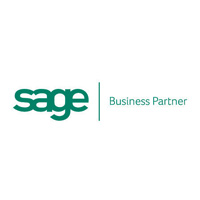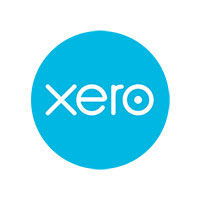 In the sixth and final article in our year end series, we look at various points for businesses to consider.
In the sixth and final article in our year end series, we look at various points for businesses to consider.
Innovate to accumulate
Companies that invent new production methods or products can claim enhanced tax relief for the Research and Development (R&D) costs. Small and medium-sized companies can claim 230% of qualifying R&D costs, and a 14.5% payable tax credit if this extra deduction results in a loss!
This is a very attractive relief and it’s easy to claim. You can ask HMRC for an advance assurance that your company, and its R&D projects, will meet the requirements for R&D tax relief. We can help you do this.
The main benefit of advance assurance is that HMRC won’t raise further questions about your initial R&D claim or for R&D claims submitted in respect of the next two accounting periods.
A company can apply for Advance Assurance if it:
- hasn’t claimed R&D tax relief before
- has an annual turnover of £2 million or less
- has fewer than 50 employees
You need to apply for the R&D tax relief within two years from the end of the accounting period in which the R&D costs were incurred. So, if your company has been innovative in the recent past, don’t delay your application for R&D tax relief!
Prepare for off-payroll working
If you provide your personal services through your own company to large or medium-sized organisations, the way you are taxed may change for payments from 6 April 2020, due to the off-payroll working rules.
Where your final customer is not small (it is large or medium-sized), it must determine whether the relationship with you is a deemed employment. It may do this using the HMRC online tool called “CEST”. Your customer may ask you to provide information to feed into the CEST tool before April, to help it form its determination.
Your customer (or the agency you deal with) should tell you the outcome of the employment status determination and you can object if you disagree with the result.
Where your work is treated as a deemed employment, the payments made to your company for that work must have income tax and employee’s NI deducted from the gross amount. VAT is charged on the gross invoiced amount as normal if your company is VAT registered.
Where your relationship with your customer is not deemed employment, your invoices should be paid with no deductions, as now.
A quick way to determine whether your customer is “small”, and not affected by the off-payroll rules, is to check whether its last accounts have been audited. “Small” companies are not audited, and small is also defined as not meeting two or more of these criteria:
- Annual turnover: more than £10.2m
- Balance sheet total: more than £5.1m
- Average number of employees: more than 50
The last set of accounts filed at Companies House will tell you if the company has been audited, and should give you the figures to check against the above criteria.
We can help you check the accounts and advise on how to tell whether your customer is on the boundary of small or medium-sized.
Payroll
Most employees, with very limited exceptions, must be paid at least the National Minimum Wage (NMW) or the National Living Wage (NLW). These hourly rates vary according to the age of the worker, so it’s crucial to keep a sharp eye on the birthdays of your younger workers to ensure they are paid at the right rate for their age band.
The second trap you can fall into is to ignore some of the hours worked. All overtime hours, time spent training or standing in line for security checks, must be counted. Workers who undertake sleep-in shifts must be paid the NMW for the whole shift.
All the NMW rates will increase for the first pay period that begins on or after 1 April 2020, and it is important to get these pay calculations exactly right. Tips and gratuities can never be counted towards the NMW paid.
If you underpay by £100 or more across your whole payroll, HMRC can include your details on a list of employers in default, which is published quarterly.
The penalty for failing to pay the correct amount of NMW can be up to £20,000 per employee.
Elect in good time
Events don’t always turn out as expected. For example, you may need to wait for a later profit or loss to arise before you can judge whether it’s right to elect to change the tax treatment of an earlier transaction.
This is why the law allows you extra time, after you have submitted your tax return, to submit a tax election or claim. The elections you may need to make by 31 January 2021 for the 2018/19 tax year include:
- to set trading losses against your other income
- to average the profits made from farming, or as an author or artist
- to treat a property as continuing to qualify as commercial Furnished Holiday Letting if it qualified as such in 2017/18, but otherwise would not
You need to wait for a certificate to arrive before making a claim for your investment under the Venture Capital Schemes – EIS, SEIS or SITR – so the claims period for those schemes is five years after the tax return submission date.
Corporate tax claims generally need to be made within two years of the end of the accounting period in which the transaction occurred.
We can help you check what claims or elections you need to make.
VAT registration issues
The VAT registration threshold has been frozen at £85,000 until at least 31 March 2022. This may bring more businesses into the VAT fold if they increase their prices with the rate of inflation.
This threshold can be a harsh cliff edge, as once VATable turnover exceeds it the business must charge VAT on all eligible sales. It must also keep its VAT records in a digital format and submit its VAT returns using MTD-compatible software.
For your UK sales, you must check the cumulative total of your VATable sales (including zero-rated items) for every rolling 12-month period and register for VAT within 30 days, once this total exceeds £85,000.
Do this calculation every month, as if you tally up your sales just once a year for your accounts, you may miss this 30 day deadline. If your sales suddenly take off, you may be too busy to remember to register for VAT within 30 days. If you register later than the law demands, you can suffer a penalty.
For example, say your annual sales (accruing evenly throughout the year) are £83,000. If you increase your prices by 3% in January 2020, by 31 October 2020 your turnover in the previous 12 months will be £85,075 and you will have to register for VAT within 30 days.
You could restrict your price increase to keep your turnover under £85,000, but if your purchase costs are increasing this will cut your profit margins. Alternatively, you could perhaps restrict your sales by taking longer holidays, if you can afford it.
Another idea is to hive off a part of your business into a separate legal entity, so that each new business has turnover under £85,000. However, this must not be an ‘artificial’ split.
The two businesses should have a bank account each, keep separate business records and file separate tax returns. Ideally, the businesses should provide different services or goods to separate groups of customers. There must be separate contracts with any common suppliers.
Many businesses, may wish to register for VAT earlier than needed. Early registration allows you to claim back VAT on your start-up expenses. You can reclaim VAT on services used within the six months before your VAT registration date, and on goods acquired within four years before that date (if they are still held at the date of registration). The VAT paid on an expensive shop refit could be lost if you delay VAT registration for too long.
However, it’s a balancing act – if you register earlier than required, you must account for VAT on sales made after your registration date that could otherwise have been VAT-free.
You can’t change the VAT registration date requested once you’ve applied to register. It’s very important to plan your VAT registration, to ensure the registration date falls at the optimum time for your business.
Businesses that sell digital services (such as eBooks or software) to nonbusiness customers in EU countries are not required to register for VAT in those EU countries, if the total value of their digital sales to other EU countries is less than £8,818, but this threshold only applies while the UK is a member of the EU.
When the UK is no longer treated as a member of the EU, you will need to register for VAT in an EU country if you sell any digital services to non-business customers in EU countries. You will also have to charge the correct rate of VAT on your digital services provided in each EU country where your non-business customers belong.
Timing is everything
The end of the accounting period for your business is a key point for tax planning. You can save or delay tax by moving income and expenditure between accounting periods.
For instance, advancing the acquisition of assets to just within your current accounting period will mean the Capital Allowances associated with those assets can be claimed earlier.
The cost of qualifying assets which fall within the Annual Investment Allowance (AIA) is given in full as a Capital Allowance in the year of purchase. The maximum amount that can be claimed under the AIA per year is £1 million, for expenditure incurred in the two years to 31 December 2020. There are complex rules for accounting periods that straddle the start and end of that two-year period.
The cost of constructing, renovating or converting a commercial building to be used by your business qualifies for a 2%pa structures and buildings allowance (SBA), which increases to 3% from 1 April 2020. Costs connected with residential accommodation don’t qualify for the SBA; neither do the costs of acquiring land or obtaining planning permission.
If your current year profits are looking very healthy, you may want to advance the payment of repairs, training costs, bonuses or pension contributions.
An accrued salary payment, such as a bonus voted before the year-end, is deductible for the period if it is actually paid within nine months after that year-end. However, a pension contribution must be paid within a company’s accounting period to be deductible for that period.
Please contact Vinnie Rome or Nick Luck if you would like to discuss any of the tax planning points covered in this series; on 01689 877081 or complete our online form.
Registered as Auditors in the United Kingdom by the Association of Chartered Certified Accountants.




